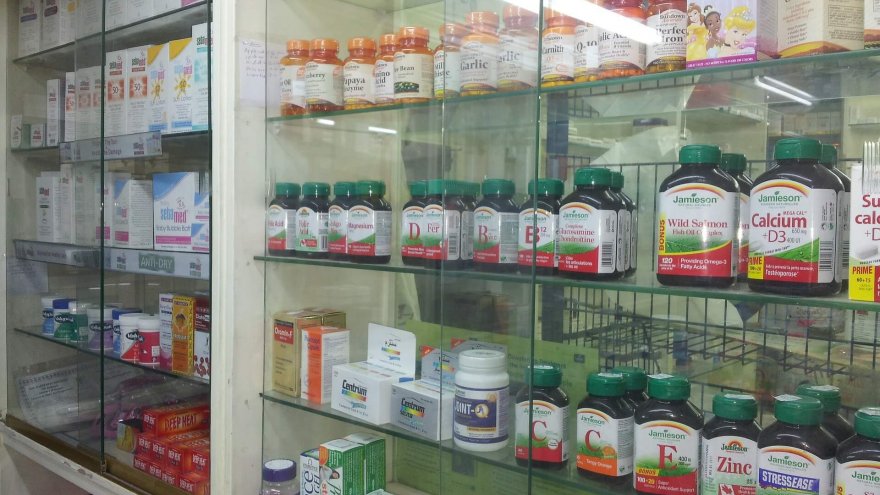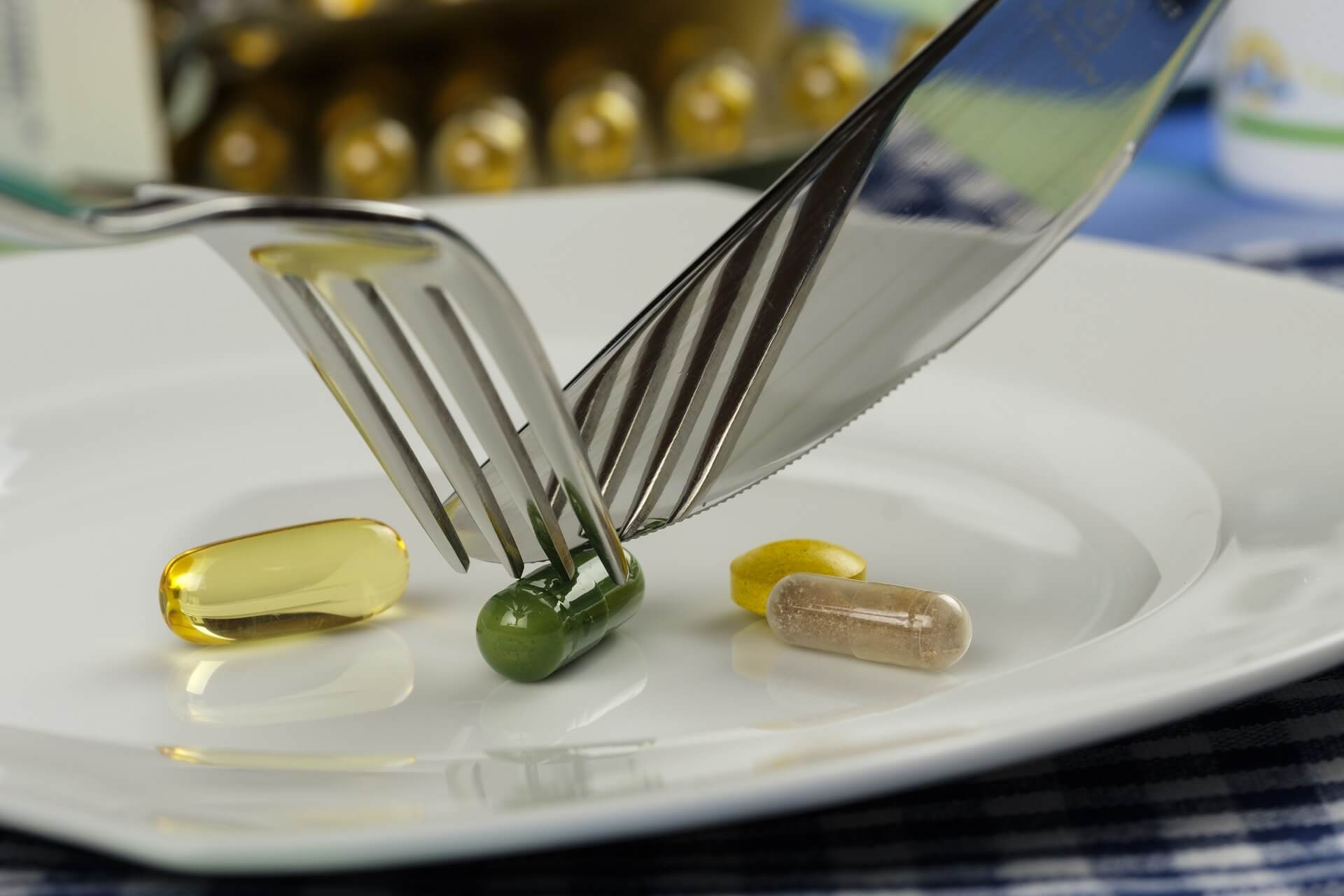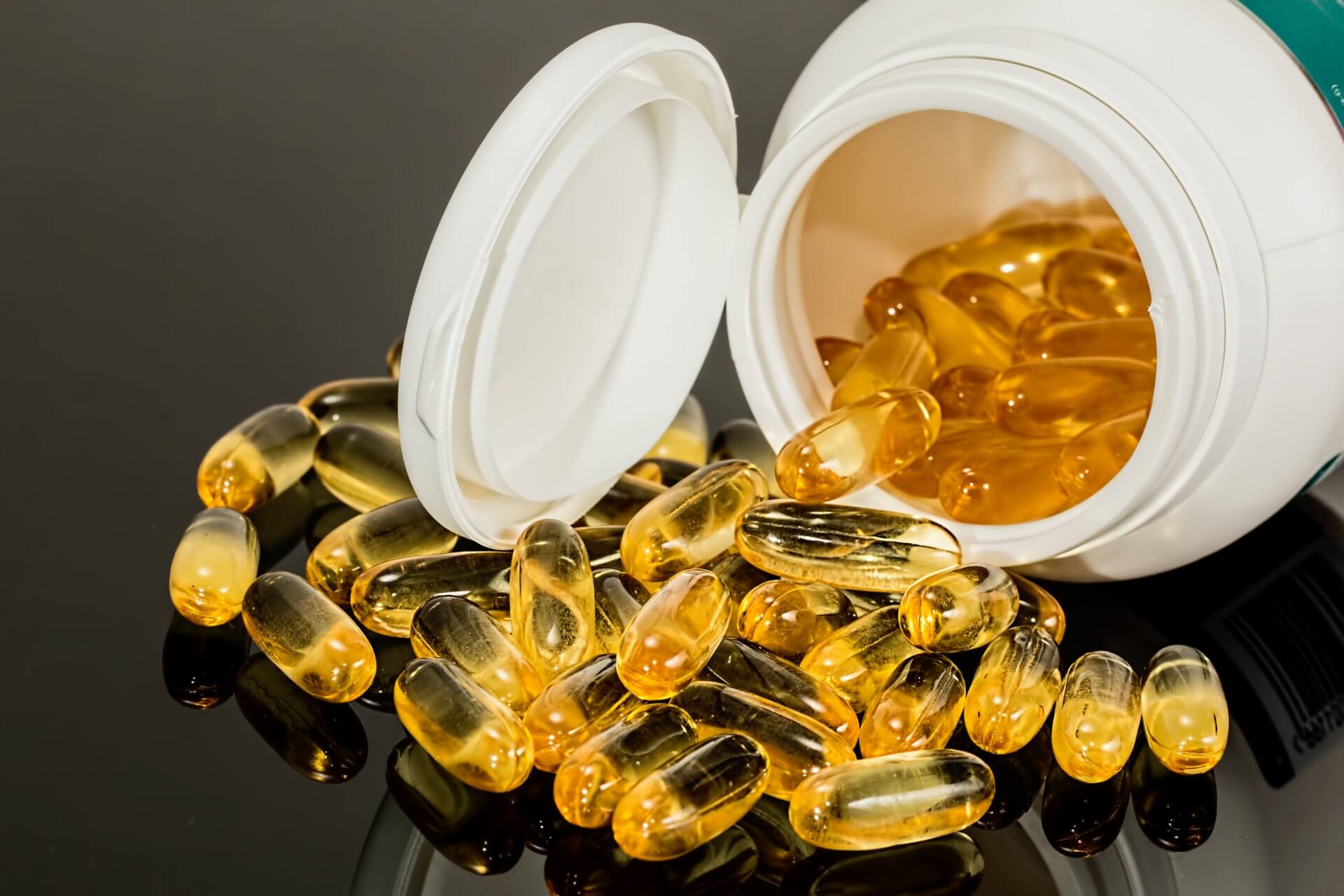Dangerous Ingredients in Dietary Supplements

Adding supplements to your diet often can be a beneficial way to counter unhealthy eating habits. Although often not absorbed as easily as vitamins and minerals from food, taking certain supplements can ensure that you are getting the recommended daily requirement, particularly if a food allergy or intolerance keeps you from eating certain things like gluten or dairy products. But, those who make supplements a regular part of their diets need to be wary and steer clear of certain ingredients that can do more harm than good.
What Qualifies as a Dietary Supplement?
According to the National Institutes of Health (NIH) Office of Dietary Supplements, supplements include vitamins, minerals, enzymes, amino acids, herbals and botanicals and a variety of other products. They come in many different forms— capsules, tablets, powders to mix with liquids, energy drinks, and bars.
All dietary supplements are required to be branded with a Dietary Supplement Label that details the ingredients, both active and inactive, and the number of active ingredients per serving. The label also includes a recommended daily dosage although your health care professional might specify a different dosage depending on your dietary needs.

According to NIH, scientific evidence supports the benefits of supplements in certain cases. Vitamin D and calcium are critical to strong bones and may help prevent osteoporosis; folic acid can decrease the risk of birth defects when taken by those who are pregnant; omega-3 fatty acids from fish oils might be a beneficial addition for some suffering from heart disease.
It is important to note, however, that the U.S. Food and Drug Administration (FDA) does not do any testing to verify a supplement’s effectiveness before it is marketed.
Does Anyone Oversee the Manufacture of Supplements?
The bad news is that no federal or private entity oversees the efficacy or the marketing claims of dietary supplements.
Currently, drugs manufactured in the United States are required to meet the standards of the U.S. Pharmacopeia, a “reference of uniform preparations for the most commonly used drugs—with tests to ensure their quality, potency and purity.” First published in 1820, the U.S. Pharmacopeia and its sister compendium, the National Formulary, ensure that drugs manufactured here meet five standards based on laboratory testing. These standards include:
- Identity: the product is in fact what the packaging claims it to be
- Potency: the correct amount of the product is in the packaging
- Purity: the product is contaminant- and impurity-free
- Performance: the product will be absorbed in the body via the method intended

Following the 1906 Pure Food and Drug Act, labeling drugs with “USP” became common practice to denote that those drugs met the standards of the U.S. Pharmacopeia. And although drugs continue to be required to meet the standards of the U.S. Pharmacopeia, labeling with USP is voluntary.
Dietary supplements are treated very differently than prescription and over-the-counter medications, however. In 1994, the Dietary Supplement and Health Education Act (DSHEA) established a system of regulations for natural health products, including dietary supplements. Although manufacturers of dietary supplements and other natural health products are required by DSHEA to “follow good manufacturing practices,” they are not required to comply with USP standards; compliance with USP standards is purely voluntary. Those who choose to follow USP standards can designate “USP” on the label.
To help consumers, USP established the USP Dietary Supplement Verification Program (DSVP), a voluntary program for manufacturers that meet the exacting standards of USP. These manufacturers can use a distinctive USP Verified Mark on their labels.
ConsumerLab.com and NSF International also offer testing of dietary supplements to ensure good manufacturing processes, that the supplement is what is noted on the label and that it is free from contaminants and impurities. Products that have undergone testing can use the organizations’ seals of approval on their labels. These tests, however, do not guarantee the safety or effectiveness of the product.
Dangerous Ingredients in Supplements
Some perfectly safe supplements become dangerous because of additional ingredients, mostly added to increase the look and the appeal of the supplement.

According to the American College of Healthcare Sciences, ingredients to look for and avoid in supplements include:
- Artificial colors: These are added to improve the appearance of the supplement. Many artificial colors have been linked to hyperactivity in children. Steer clear of FD&C Blue No. 1 and No. 2; Green No. 3; Red No. 3 and No. 40; Yellow No. 5 and No. 6.
- Hydrogenated oils: Used as a filler in vitamins and supplements, hydrogenated oils—most often soybean oil— can lead to high blood pressure, high cholesterol and heart issues.
- Lead, mercury and polychlorinated biphenyl (PCBs): Since many fish we eat can accumulate high levels of mercury, lead and PCBs, it would make sense that those same ingredients can be found in omega-3 fatty acids derived from these fish and, in turn, in common fish oil supplements. Some speculate that these contaminants may be why fish oil supplements are linked to an increase in prostate cancer. A Consumer Reports study conducted in 2011 found that one-third of all fish oil supplements studied tested high in PCBs.
- Talc or magnesium silicate: Talc, as in talcum powder, and magnesium silicate, which is similar in structure to asbestos, is often used as a filler in the capsule form of supplements. The FDA does not consider talc to be edible.
- Titanium dioxide: Used as a colorant, titanium dioxide has been connected to lung inflammation and damage and damage to the immune system. In mice, it has been linked to kidney damage and small intestine inflammation and may be especially harmful to those who have gluten sensitivity or Crohn’s disease.
Unfortunately, this is not an exhaustive list. For even more ingredients to look for in dietary supplements, read “15 Supplement Ingredients to Always Avoid” on consumerreports.org.
Be Extra Discriminating with These Three
According to an event organized by the Harvard T.H. Chan School of Public Health and reported on by businessinsider.com on July 10, 2017, supplements in three big markets have the potential to be the most harmful: weight loss, muscle building, and sexual performance.
A handful of these types of supplements have been linked with an increase in certain cancers and others to an elevated risk for developing kidney stones.
The greatest issue with these supplements is that some ingredients may not even be listed on the label. In June 2017, the FDA recalled two bodybuilding supplements after traces of derivatives of anabolic steroids were found. Anabolic steroids can have detrimental impacts on the liver and increase the risk of infertility, heart attack, and stroke.
Weight loss supplements have sometimes contained controlled substances like sibutramine, which the FDA banned 10 years ago. Still, others contained phenolphthalein, a chemical that has been linked to certain cancers and others contained traces of prescription drugs, which can interact with medications already being taken, sometimes with serious detrimental effects.
The bottom line is that it is important to choose your supplements with great care and with the guidance of a healthcare professional. And always let your doctor know of any supplements you are taking during any visit, whether for an illness or regular physical exam.
Sources
Latest Articles
 Is Running on a Treadmill Easier Than Running Outside?Runners have their own preferences, whether it is treadmill running, running outside on the road, or exploring trails. So...
Is Running on a Treadmill Easier Than Running Outside?Runners have their own preferences, whether it is treadmill running, running outside on the road, or exploring trails. So... Is It OK to Use Trail Running Shoes on the Road?While trail running shoes can be used on roads, especially in situations where a runner encounters mixed terrains or pref...
Is It OK to Use Trail Running Shoes on the Road?While trail running shoes can be used on roads, especially in situations where a runner encounters mixed terrains or pref... How to Fix Sore Quads After Running?Rest, ice, gentle stretching, and over-the-counter pain relievers can help soothe sore quads after running. Also, ensure ...
How to Fix Sore Quads After Running?Rest, ice, gentle stretching, and over-the-counter pain relievers can help soothe sore quads after running. Also, ensure ... 10 Fruits With The Most Electrolytes to Replace Sports DrinksThese fruits are high in electrolytes such as potassium, magnesium, and calcium, essential for hydration, muscle function...
10 Fruits With The Most Electrolytes to Replace Sports DrinksThese fruits are high in electrolytes such as potassium, magnesium, and calcium, essential for hydration, muscle function...

